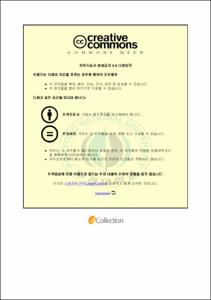보충학습이 수학 학업성취도와 수학 학습태도에 미치는 효과
- Alternative Title
- Effects of the Compensatory Learning on Academic Achievement and Attitude Towards Learning Mathematics
- Abstract
- The purpose of this study is how compensatory learning affects students' academic achievement and attitudes toward learning mathematics after conducting a survey of low-level students who were given to take formative evaluation.
After the formative evaluation, a compensatory learning was executed to the experimental group, and the comparative group was told just the answers of questions. Examination papers for an academic achievement and a learning attitude about mathematics were used for both groups as an examination method. The results of the test were analyzed as Independent-Samples T Test by using SPSS program.
The following results came out from the research.
First, we know that students who took the compensatory learning after the formative evaluation experienced more positive effects in academic achievement of mathematics than students who just simply checked the answers of questions after the formative evaluation.
Second, the group which had the compensatory learning after the formative evaluation has more positive effects on the attitude towards learning mathematics than the group which simply checked the answers of questions has.
Consequently, it can be concluded that taking a compensatory learning after the formative evaluation seems to have positive effects on the students' academic achievement and attitude towards learning mathematics.
- Issued Date
- 2013
- Awarded Date
- 2013. 2
- Type
- Dissertation
- Publisher
- 부경대학교
- Alternative Author(s)
- Park, Hye Rim
- Affiliation
- 부경대학교 교육대학원
- Department
- 교육대학원 수학교육전공
- Advisor
- 신준용
- Table Of Contents
- Ⅰ. 서론 1
1. 연구의 필요성 및 목적 1
2. 용어의 정의 2
3. 연구 문제 4
4. 연구의 제한점 4
Ⅱ. 이론적 배경 6
1. 형성평가 6
2. 학업성취도 16
3. 수학 학습태도 17
4. 수준별 수업 19
Ⅲ. 연구 방법 및 절차 23
1. 연구 대상 23
2. 연구 설계 24
3. 측정 도구 26
4. 연구 절차 및 내용 27
5. 자료 분석 30
Ⅳ. 연구 결과 및 해석 32
1. 연구문제 1의 해석 32
2. 연구문제 2의 해석 39
Ⅴ. 결론 및 제언 51
1. 결론 51
2. 제언 53
참고 문헌 54
부록 57
- Degree
- Master
- Files in This Item:
-
-
Download
 보충학습이 수학 학업성취도와 수학 학습태도에 미치는 효과.pdf
기타 데이터 / 1.52 MB / Adobe PDF
보충학습이 수학 학업성취도와 수학 학습태도에 미치는 효과.pdf
기타 데이터 / 1.52 MB / Adobe PDF
-
Items in Repository are protected by copyright, with all rights reserved, unless otherwise indicated.